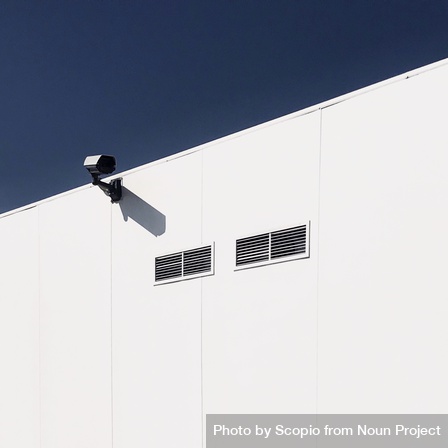
There’s a lot of people asking about which security cameras are best for the purposes of home security. In here I’ll try and give you some considerations. I’ll probably use WiFi and Wireless interchangeably for all intents and purposes it means the same thing.
What is WiFi?
First of all - let’s try and understand some background information on WiFi. WiFi network(s) are what you typically get from the router given to you from your Internet Service Provider (ISP). You might have even customised the name or changed the password. For example, you might have had Virgin provide you “VM729492” but you changed it to “Pretty_fly_for_a_wifi”. You may also have provided your own wireless router that you just plug in to the ISP router which is also fine. What matters most in all of this is what security you have on the WiFi network.
Why WiFi Security Matters
OK this can get a little bit technical but… Most ISP routers come with WEP/WPA or WPA2 as the WiFi security options. First of all, if you find you’re using WEP or WPA please change it to at least WPA2. That’s not perfect, but its better than the other two. There is a really good guide here explaining the difference if you want to get technical: https://community.fs.com/blog/wep-vs-wpa-vs-wpa2-vs-wpa3.html. What’s this got to do with WiFi Cameras? A lot. You see most WiFi cameras only use WPA2 and that can be attacked really, really easily and the result of that attack will take your camera offline.
You can buy kits on Amazon to do this or if you’re technical you can launch your own De-auth attack. Wait… what? Yes. Check the settings of the camera and how it connects to the wireless network. If it uses WPA2 or lower an attacker can use these kits bought on amazon or their own device to tell your wireless router to ignore the communication from the WiFi camera. This means your investment is pointless. One thing worth pointing out is that this does not cover WiFi burglar alarms - they do not use the same spectrum as WiFi networks.
What’s the options?
First off: consider if Wifi cameras are right for you? Would wired work better? If you still want the flexibility of WiFi cameras (and doorbells) either mains powered or battery then below are a few considerations:
- get more than one, overlap them if needed. A De-auth attack is one-to-one
- buy a camera supporting WPA3 (make sure you have a router that supports WPA3, this can cost an extra ~£80 from Amazon). WPA3 is not vulnerable to De-auth attacks as it enables encryption of the management frames (IEEE 802.11w)
- look at devices that operate a proprietary wifi network to communicate to the cameras. These typically have some base station you install and the base station handles the connectivity to the cameras. This means the cameras are not impacted by a De-auth attack.
- Cameras that use zigbee / ZWave
So What?
Ring, Blink, Eufy and Nest Doorbell v1 only run WPA2. Nest Doorbell and cameras v2 run WPA3. Some Eufy products have a base station. Whatever you decide to do, remember it’s OK to have WPA2 cameras but it might be prudent to have more of them in case one gets attacked.
Remember
There is nothing wrong with running devices that only use WPA2 but some overlap adds more protection. Also think about overlapping cameras for driveways and backdoors / patios. It would be pointless only to have camera protection on the front door only and ignoring the other access points to the property.
It doesn’t end there though… Regardless if you add WiFi or wired cameras you have to still follow the law. You can freely put up a doorbell camera and record the public right of way as long as you follow the guidance and framework established by the Information Commissioner’s Office.
Some key points are below where you must:
- put up signs indicating you are recording potentially both sound and motion.
- know how to operate the system.
- only keep the data for as long as necessary.
- if someone asks you for a copy of any footage you have of them crossing the field of vision you must provide it to them free of charge. You cannot deny them.
- Further help can be found here: https://ico.org.uk/for-organisations/sme-web-hub/checklists/data-protection-self-assessment/cctv-checklist/
If you found this useful consider buying me a coffee to say thanks: https://www.buymeacoffee.com/gerudo


